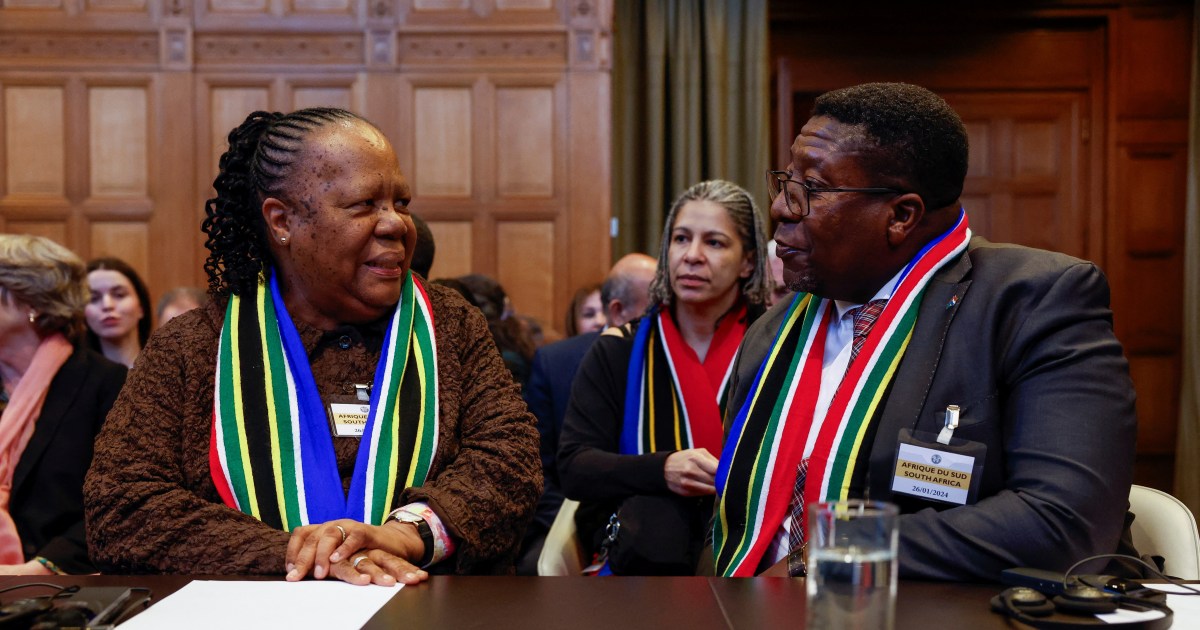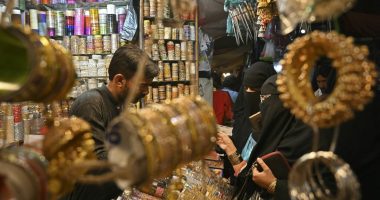
There has been much discussion about South Africa’s landmark case against Israel at the International Court of Justice, accusing it of committing the crime of genocide. When it comes to tangible action, this case has been one of the few bright spots in an otherwise lackluster response from states around the world to the Israeli slaughter of the Palestinian people.
One of the lesser known parts of this story in Western public discourse generally, but more pertinently within activist spaces, is that the US empire is threatening to punish South Africa for bringing this much needed case against Israel.
Republican Representative John James and Democratic Representative Jared Moskowitz introduced in early February the US-South Africa Bilateral Relations Review Act in the United States House of Representatives. This legislation would require a full review of the relationship between the US and South Africa on the baseless and spurious grounds that South Africa is supporting “terrorism”.
South African International Relations and Cooperation Minister Naledi Pandor recently said on a visit to Turkey: “In terms of responses, unfortunately, there are some legislators in the United States of America that have taken a very negative position against my country.”
Although this story has received little attention and many pro-Palestinian activists in the US, Canada, the United Kingdom and elsewhere have not even heard about it, it is part of the discourse in activist and scholarly circles in South Africa. Among other things, people are concerned about what these threats will mean to their economic wellbeing; funding for the arts; scholarly, community, social and cultural projects and initiatives; and the sustainability of funding models for nongovernmental organisations since many of these are economically dependent on various US institutions.
It is incumbent on activists across the world, but especially in the US, to speak up against the US threat to punish South Africa and demand that their government does not pursue such a path. This should become a protest demand along with the other demands that activists are currently making. South Africa has put its neck on the line for the Palestinian cause, and the least Palestinian supporters can do is to support South Africa against the threats of US imperialism in this moment.
It is also incumbent on middle powers across the world to begin forming a coalition to protect not just South Africa today but also themselves from US imperial power.
It is clear to any honest observer that without direct action from states to isolate the Israeli state economically and politically and place pressure on it legally, it will not depart from the path of genocide – not now, not in the future.
When pressed on the necessity of taking this course of action, one of the common off-the-record responses activists, policy analysts and scholars receive from government officials around the world, including South Africa, is: “We want to pursue more meaningful direct action to help the Palestinian people, but we cannot withstand a punishing reaction from the US.”
I do not see this response as a form of diversion, nor do I consider it cowardly. Government officials cannot so easily dismiss the economic hardships their country would face from a harsh US reaction.
But it is not good enough to end the conversation with this response. Since the US empire is a major obstacle to Palestinian rights, freedom, liberation and sovereignty as well as the sovereignty of middle powers, then middle power states have both a duty and a self-interest to plan and follow a path of action that deals with this problem.
Obviously, the best path forward is for countries around the world to become less dependent on US and Western imperial economic power. Although there are efforts to accomplish this goal, such as BRICS, it remains a long way from changing global economic structures. The Palestinian people cannot afford to wait this long.
Another more immediate path is to make it difficult for the US to respond harshly to states that cut off all diplomatic and economic ties to the Israeli state. The principle of this more immediate path is simple: There is strength and safety in numbers.
If a coalition of middle powers forms and together announces their severing of ties with Israel, then it will be more difficult for the US to punish them all because it would become too costly for the US itself to do so.
What might such a coalition look like? It can start with countries like South Africa, Turkey, Brazil, Colombia, Chile, Egypt, Morocco, Spain, Norway, Ireland and others. Countries that already don’t claim any diplomatic and economic relations with Israel – such as Saudi Arabia, Indonesia, Malaysia, Pakistan and others – would also join the coalition to offer support and protection from the US. Lesser powers can also join when this momentum builds, adding pressure and making it virtually impossible for the US to target all of them.
Momentum can build, and countries such as Canada, Australia, New Zealand, Belgium and others that understand that this is the right course of action but are either too cowardly or too unwilling to pursue it for reasons of economic self-interest and their role in the US imperial alliance might be pressured to join, even if partially, by imposing a full two-way arms embargo on Israel.
None of this will be easy. But it is necessary, and it can work. And here I think that activists should begin to speak to their government’s self-interest to pressure them towards forming such a coalition. Governments will only move so much on the basis of a “name and shame” strategy and electoral politics calculations. State self-interest has to also be addressed; activists, policy analysts and scholars can convince their governments that it is in their best interest to follow this policy path.
Challenging the US empire on the question of Palestine will have tremendous consequences for building a more democratic world order. Although some of the states listed above believe that by simply ignoring the plight of the Palestinian people, they can avoid clashing with the US, this is short-term thinking for two reasons.
First, just because they can avoid the wrath of the US on the question of Palestine does not mean that they will not face it on another issue in the future. It is never in the self-interest of middle powers to live under the subordination of a great superpower. Even if temporarily beneficial, at some point, there will be a price to pay for this subordination. So why challenge it now if they do not have to at this moment?
This is where the second reason comes in. There is currently grassroots momentum around the world to challenge US imperialism. Now is the time to seize the opportunity, draw on this energy and direct it towards a democratic world order that in fact stands up for human rights and freedoms for all.
It is critical to seize this moment and send a message to the US empire that business as usual, where US dominance determines international economic, political and cultural directions, is neither wanted nor tolerated. The US empire will either have to come around or itself become isolated. When we reach that stage, we will reach the end of Israeli settler colonialism. We will reach the end of apartheid and genocide, the two most lethal weapons in the Israeli settler colonial arsenal.
Once Israel is globally isolated, it will be forced to change its behaviour. Israelis will have no choice but to cease their settler colonial project. Palestinians and Israelis can then begin negotiating for true decolonial peace and justice under the banner of a one-state solution, under which all have equal rights and freedoms and the land and sovereignty can be shared between Palestinians and Israelis.
Such an outcome will not only be beneficial for Palestinians and Israelis, but it will also be a real signal that the US empire is no longer the empire that it once was and people from around the world, Americans included, can begin to build a real democratic world order that is no longer under the thumb of one superpower.
A democratic world order will decrease the chances of great wars, imperial wars and settler colonial conquests and help avoid the tremendous human suffering that the Palestinians today are experiencing.
The horrors that the Palestinian people have been facing for more than 100 years did not start with the Palestinians and will not end there. It is in everyone’s self-interest to avoid such suffering, and one way to do that is to build a more democratic world.
The great Nelson Mandela once said: “We know too well that our freedom is incomplete without the freedom of the Palestinians.” It is well past time that the rest of the world came to truly understand what this quote means and take tangible action to advance freedom from empire and colonialism.
The views expressed in this article are the author’s own and do not necessarily reflect Al Jazeera’s editorial stance.
Read More: World News | Entertainment News | Celeb News
Aljazera







